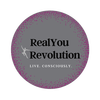|
For an addict (I use this term to include alcoholic), feeling our feelings is a critical component to dealing with addiction and recovering from addiction. It is important to understand that someone who has been numbing their feelings for years is going to go through a phase in early recovery where they begin to feel feelings for the first time, and it’s typically a scary and unpleasant experience. I remember hitting about the four-month mark crying on the phone with a woman in the program telling her I would rather be trashed every day of my life then feel the way I did at that moment. Everything I had avoided dealing with was coming out of my cells, pains and struggles I had stuffed down for over 15 years.
Another important piece in understanding addiction is that the addict essentially stops growing emotionally around the time they first started using drugs and/or alcohol. For many of us the path started with pot or drugs as early as 12 or 13. This applies to anyone and everyone recovering from addiction whether 15 or 50. So recognize that now you have this person who has stopped the addictive behaviors but has started to have some uncomfortable feelings come up, who has the ability to deal with such issues on the same level as a teenager or preteen. This is why as many support systems as we can put in place are critical to the recovery process. Meetings, sober peers, therapists, recovery coaches, it doesn’t take one or two of these but ALL of these to increase the chances of success and long-term sobriety or the ability to bounce back quickly from a slip. Even after a significant amount of time in recovery, having feelings come up is risky. The addict wants to instantly “fix” the feelings and have control over numbing them or making them go away. So aside from the initial support systems a person must develop the proper coping skills that work for him or her. This even applies to physical feelings… I know every time I got sick in early recovery I wanted to drink because in the end that was what I did to feel better. A person cannot simply be told what works for them, they have to learn to develop and understand these coping mechanisms as they see fit for themselves. The key to feeling negative feelings is not to sit in the pain to sulk and stay depressed; it is to process through these feelings until they have left us. Taking a line from the wonderful Pema Chodron: “ The best thing you can do is learn how to fail really well, to hold the pain of things happening that you really don’t want to be happening … to experience the rawness of vulnerability … and to know the experience of when something terrible happens it means an opportunity for you to evolve into a better place, a new experience”. In the end, life happens; we must all understand that moments and feelings pass, yes, both the bad and the good. The beauty of life in recovery is being able to recognize this, be in moment, and ride the wave. RealYou Revolution, LLC. is New England's premier resource for cutting edge substance use disorder services. Advanced Intervention - Sober Companions - Recovery Coaches - Family Support Services - Case Management -DUI/OUI Support - Anger Management Self Esteem Development - Anxiety Management
6 Comments
The concept of Recovery Coaching has been utilized for years but it is just recently being brought back into mainstream recovery. There are so many different ways people use the term Recovery Coach and ways organizations employ people with this title. At RealYou Revolution we believe a Recovery Coach is someone who has gone through their own journey with addiction and can use that experience to assist others in moving through the recovery process. We believe therapists, sponsors, and professional recovery coaches are the foundational trifecta critical in helping people turn their life around. Below are just a few ways a coach makes the difference:
1) Navigating the Recovery World – Recovery Coaches can get to know you and figure out which methods of treatment might be the best for you to start off with. They also typically have connections within the Substance Use Disorder field and can assist with admissions and insurance challenges. A good recovery coach will continue to stay in touch with treatment centers throughout the process and adjust course accordingly along the way. They will also be the one solid link in the continuum of care, for example, guiding the client from detox to inpatient to outpatient to sober living, etc. 2) Around the Clock Availability – Because Recovery Coaches are not therapists’ restricted by state licensure, and they are not sponsors who kindly donate their time, they should be available 24-7 when a client is in need. This means if you are concerned about using at 1:00am and call your Recovery Coach, you should be able to expect them to answer for support. This is a invaluable resource in the early stages of sobriety. 3) Family Support – Addiction is a family disease. Whether the issues are from past family troubles or the family has just gotten sick with the addicted person, there is ALWAYS work to be done here. What good is it to send your child to treatment and not expect assistance for the rest of the family? A strong Recovery Coach will identify where the work needs to be done and connect the family with the proper resources. Coaches can also assign specific activities for various family members to work on in accordance with areas needing attention. 4) Power of Example – A Recovery Coach should be all of the things that one aspires to be. While no one is perfect, a strong coach will be healthy, fit, confident, happy, and well balanced. There are obvious benefits to spending time with a coach who has their life together, who is thriving day to day, and is a living breathing example of what is possible in recovery. Putting down the drink or drug may be enough for some, but it is not TRULY living in recovery where one is growing and learning at all times and reaching their highest potential. 5) Judgment Free Zone – Many people who struggle with addictive behaviors also have issues with beating themselves up and self worth. What they aren’t used to is unconditional listening and support. A Recovery Coach is a safe person the client can trust and go to for anything. If a client relapses, their recovery coach should be one of their first calls knowing it will provide the assistance needed and not a scolding. There is a time and a place for everything and coaches understand this well. RealYou Revolution, LLC. is New England's premier resource for cutting edge substance use disorder services. Advanced Intervention - Sober Companions - Recovery Coaches - Family Support Services Case Management -DUI/OUI Support - Anger Management Assistance - Self Esteem Development - Anxiety Management Tonight on the news there was a report about 1 in 10 binge drinkers only being "problem drinkers" and not "alcoholic". As I have always said, in the end for me, I was sick of trying to "define" if I was or wasn't an alcoholic. It was about me knowing that I deserved more from the world and the world deserved more from me. Forget stats and definitions, each and every one of us knows deep down if we are being %100 honest with ourselves or not. For me, regardless of everything I lost in early sobriety, I still was able to wake up (for the first time in my life) knowing I was true to myself. It didn't matter what worked or didn't work for anyone else. The lies and justifications I told myself were NOT working towards me living to my highest potential. In my mind, that is addiction, as Tommy Rosen says "Any behavior that you continue to engage in despite the negative consequences that the behavior leaves in its wake". And that's accurate enough for me. People can call it what they want, and they can also choose to exist for their entire life in a fog. But I have decided that's not for me, and I couldn't be more grateful that I took that leap of faith.
If you are looking for help on an intervention, or learning how to overcome addiction, call or email us today! 774-329-4393 [email protected] |
about the master coachDanielle, the Founder & Master Coach of RealYou Revolution, is a woman in long term recovery with a passion for helping others overcome their own personal demons – whatever they may be.
|
Location |
|




 RSS Feed
RSS Feed